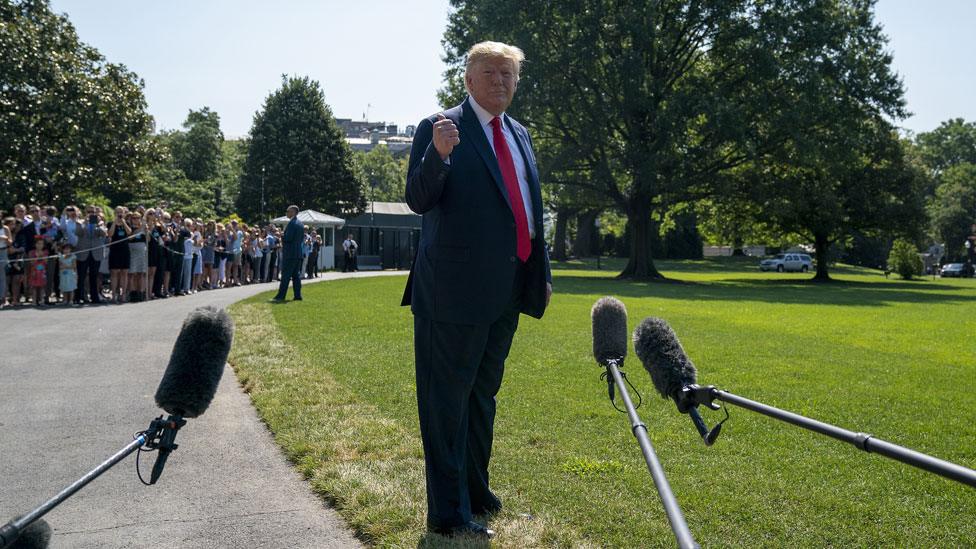Trump impeachment: Did the whistleblower rules change?
- Published
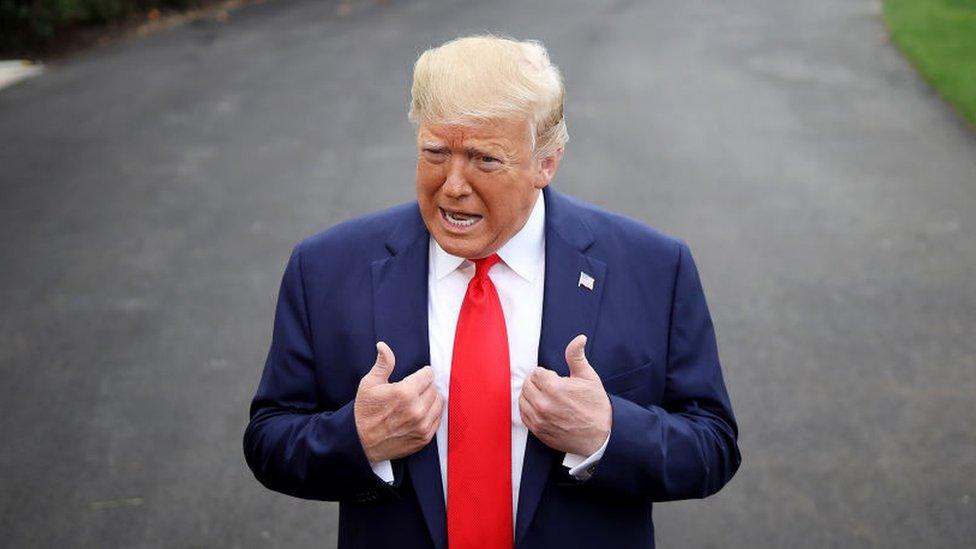
Claim: US President Donald Trump and other Republicans say the rules for complaints made by whistleblowers were changed shortly before an anonymous whistleblower raised concerns about the president's phone call with the leader of Ukraine.
The US president is accused of pressuring Ukraine to dig up damaging information on his Democrat rival, Joe Biden.
Verdict: The regulations governing whistleblower complaints have not changed. The wording of the form that whistleblowers use to raise concerns was already under review, and was changed after the whistleblower made the complaint about President Trump's phone call.

President Trump is at the centre of an impeachment inquiry following the phone call he made to the Ukrainian president on 25 July.
In August, an anonymous intelligence official expressed concern that Mr Trump had used his office to "solicit interference from a foreign country" in the 2020 presidential election.
What we know about Biden-Ukraine corruption claims
A rough transcript of the call revealed that Mr Trump had urged the Ukrainian leader to investigate former US Vice-President Joe Biden as well as Mr Biden's son.
Mr Trump and his supporters allege that Mr Biden abused his power to get Ukraine to back away from a criminal investigation into a Ukrainian energy company, Burisma, that employed his son, Hunter, on its board.
The current Ukrainian prosecutor general and his predecessor have said no evidence has emerged of wrongdoing by the Bidens.
What's the complaint about whistleblower rules?
President Trump has said that the whistleblower rules were changed just before the submission of the complaint about his phone call to Ukraine.
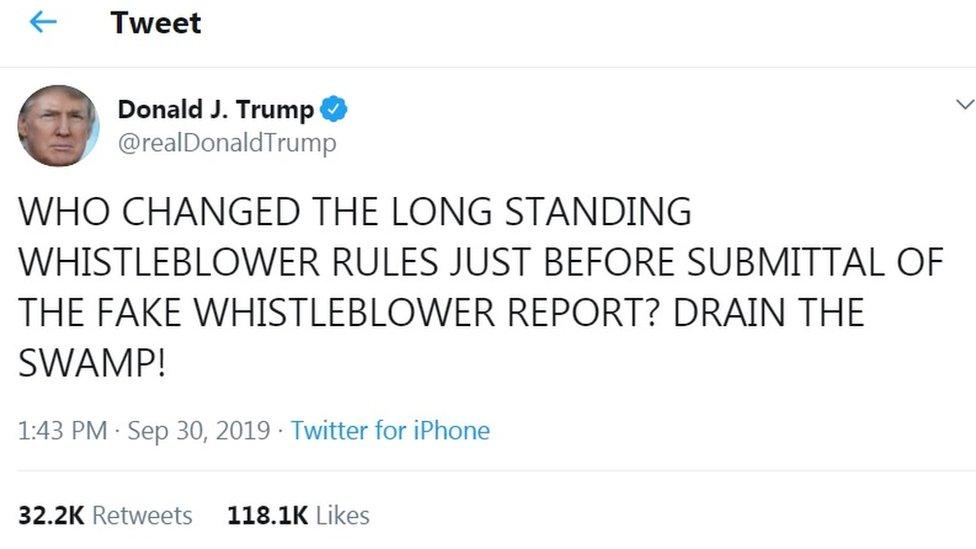
Other Republicans have joined in, suggesting the rules were amended to allow the whistleblower to submit a complaint based on second-hand sources.
Republican Senator Lindsey Graham said: "I want to know why they changed the rules about whistleblowers - the hearsay rule was changed just a short period of time before the complaint was filed."
Were the rules changed?
President Trump and others seem to be referring to a recent change to the wording of a form used for making whistleblower complaints.
This did change as part of a review that was already going on before Mr Trump called the Ukrainian leader, according to a statement from the Office of the Inspector General of the Intelligence Community., external
This body deals with complaints made by whistleblowers working within the US intelligence services.
However, the change was only made after the whistleblower made his complaint about the Ukraine phone call, and not before, according to the watchdog.
The statement says the complaint was received on 12 August, using the same form that had been in use since 24 May 2018.
It says three new forms have now been developed to remove language which the Inspector General for the Intelligence Community thought could be "incorrectly read as suggesting whistleblowers must possess first-hand information to file a complaint".
The statement also says: "By law, the complainant - or any individual in the intelligence community who wants to report information with respect to an urgent concern to the congressional intelligence committees - need not possess first-hand information in order to file a complaint."
It also points out that with the complaint about the Ukraine call, the whistleblower checked the relevant boxes for having both first and second-hand knowledge of the incident.
And legal analysts say any revision to the form could not change underlying US law governing such cases. The legislation makes clear that whistleblowers do not require first-hand information.


- Published7 October 2019
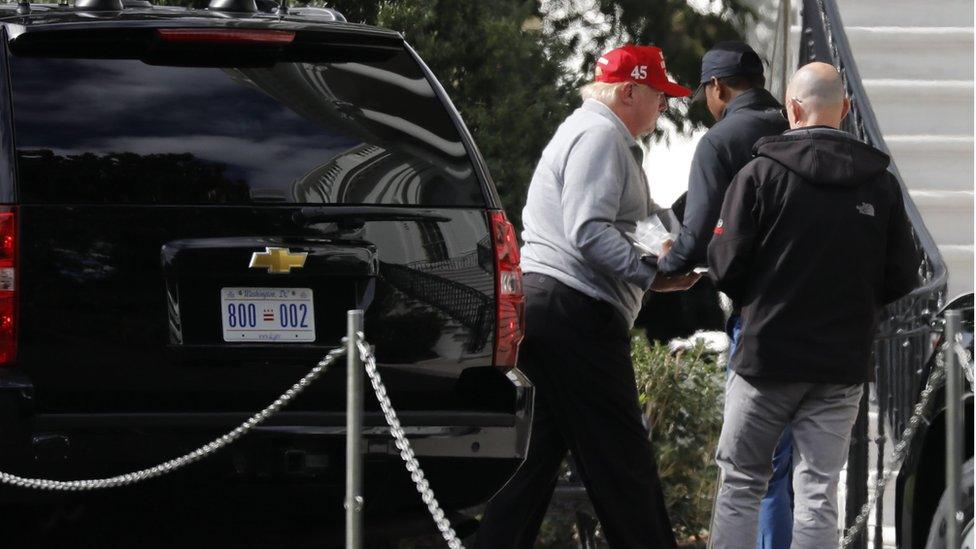
- Published4 October 2019
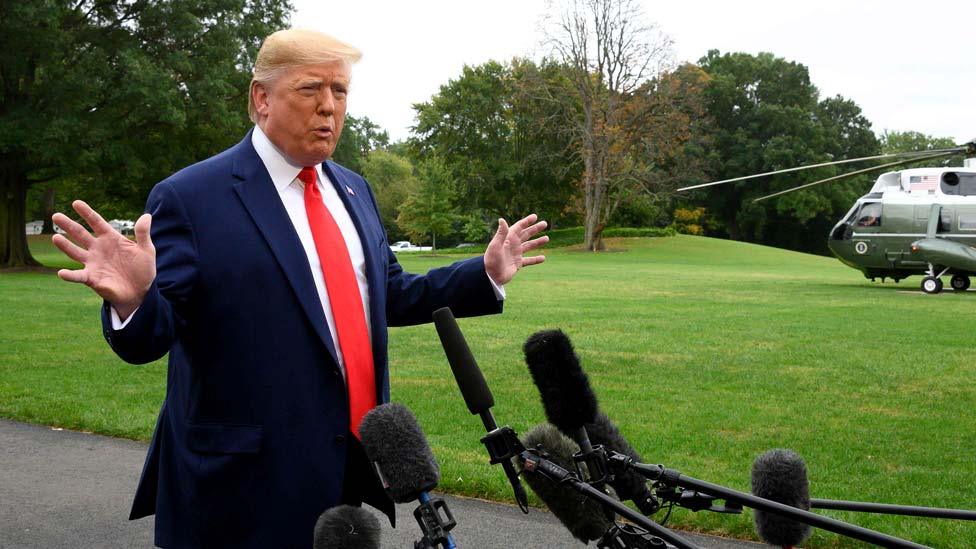
- Published4 October 2019
